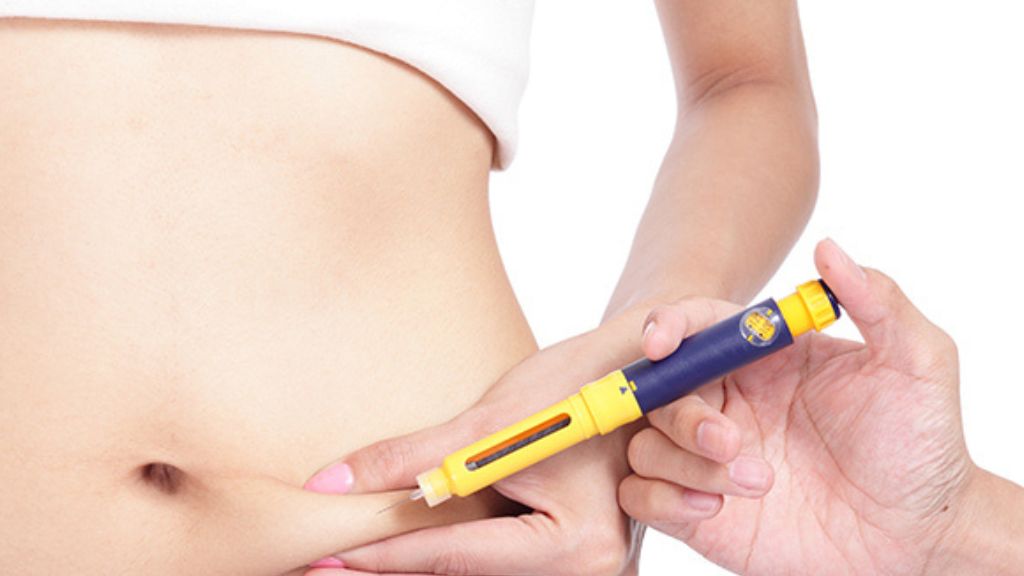
Table of Contents
IVF (in vitro fertilization) is the procedure that is used to fertilize eggs in a test tube. It is a nexus of several procedures that assist in child conception and fertility and has been named the most effective Assisted Reproductive Technology (ART). IVF can be carried out in the following ways:
- Using a couple’s own sperms and eggs
- Using a donor’s sperm, eggs, or embryos.
Which one to choose depends on your diagnosis of what kind of infertility you have. Consult, communicate, and discuss with your doctors before undergoing IVF. The foremost step in this procedure is injecting the patient with gonadotropins so that multiple eggs are produced in the ovaries. These IVF injections will be followed by blood work and ultrasounds.
What to Expect From Fertility Injections?
IVF injections are drugs injected into the patient undergoing an IVF to stimulate their production of eggs. These are injectable medications that help your doctor in controlling the patient’s ovulation right from the beginning of the treatment cycle. You can perceive these observations after having an IVF injection:
- Increase in appetite: Hormonal injections affect the BMR and weight of the body. It will increase appetite and satiety levels. Seek medical advice if your weight gain is rapid.
- Behavioral changes: IVF injections alter your emotional quotient leading to sudden emotional outbursts. You might get distracted and emotional about your daily activities.
- Gastrointestinal (GI) side effects: Diarrhea and constipation will be frequent so make sure you consume a healthy diet that includes plenty of water and fiber.
- Psychological side effects: Fertility treatments and IVF injections affect your mental health too and you will begin experiencing symptoms of anxiety and stress. Get into the habit of doing stress-relieving activities such as yoga and meditation along with regular consultation with your practitioner.
How to Give Fertility Shots?
IVF injections are shot into the fat or muscles under the skin which is why they are termed subcutaneous. Very small needles are used for IVF injections, the same way insulin shots are given. There are two different injectable medications used in an IVF cycle: one keeps the eggs from premature ovulation while the other stimulates the production of several eggs. Here’s how IVF medication is administered:
- Lupron is administered on the 21st day of a woman’s cycle and continues taking it every day for 21 days.
- FSH is the next injectable medicine that is taken for about 9 days. FSH can be given either intramuscular or subcutaneous.
Here are the steps a doctor administers IVF injections:
- The injection site is chosen (back of upper arm, thigh, or abdomen).
- The injection site is cleaned with alcohol by beginning at the center of the site and moving outwards in a circular motion. The skin is allowed to dry before injecting so that there is no stinging sensation.
- The needle cover is removed without losing the needle from the syringe.
- The syringe is grasped like a pen. The skin is squeezed and the needle is positioned at 90 degrees to the surface of the skin.
- The needle is inserted quickly into the skin in a dart-like motion.
- The plunger is slightly pulled back to check for blood and if there is none, the drug is injected into the body by using the plunger. If there is blood in the plunger, the needle is withdrawn entirely and changed. The injection site is also changed during the second attempt.
- After the injection, the doctors let go of the skin and gently but quickly remove the needle. If there is any bleeding, then applying some pressure for 10 to 15 seconds will help.
- For the next IVF injection, another site is chosen.
- The syringe is disposed of in a glass jar or some other appropriate container.
What Time is Best for IVF Injections?
There is no specific time for stimulating injections as time is not a dependent factor in the delivery rate. A clinical trial has observed that Am and PM affect certain aspects of hormones such as:
- Blastocysts obtained
- Fertilization stage
- Number of mature oocytes
- Endometrial thickness
- Levels of progesterone
- Levels of estradiol
However, there is no difference in the baseline levels of vitamin D and the number of gonadotropins used in the IVF injections. Here’s what the clinical trial observed in the AM group given that they took IVF injections at the same time every day:
- High rate of implantation
- High rate of chemical pregnancy
- High rate of clinical pregnancy
Are There Any Side-effects of IVF Injections?
IVF injections induce some side effects just like any other injectable medication. Discuss these side effects with your doctor before the treatment is initiated so that you can monitor and manage them. Here’s what you need to look out for:
- OHSS (overstimulation of ovaries termed Ovarian Hyperstimulation Syndrome)
- Restlessness and irritability
- Bruise, soreness, or redness at the injection site
- Breast tenderness
- Frequent mood swings
- Dizziness
- Temporary visual disturbances (or blurred vision)
- Changes in cervical mucus
- Nausea
- Bloating
- Abdominal pain
- Hot flashes
- Night sweats
- Headaches
These side effects will not be the same for all women as each body is different on its own. Some of these effects may not be serious and will be temporary and subside with no complications. Nevertheless, immediately seek medical care if the side effects are persistent for a long time.
The Bottom Line:
Fertility treatments are boon to infertile couples. Once one starts an IVF treatment, they need to keep a calendar or journal to record all the blood work, appointments, scheduled shots, etc. Make notes to help yourself remember the tiniest of details and keep yourself pampered during the entire procedure.









